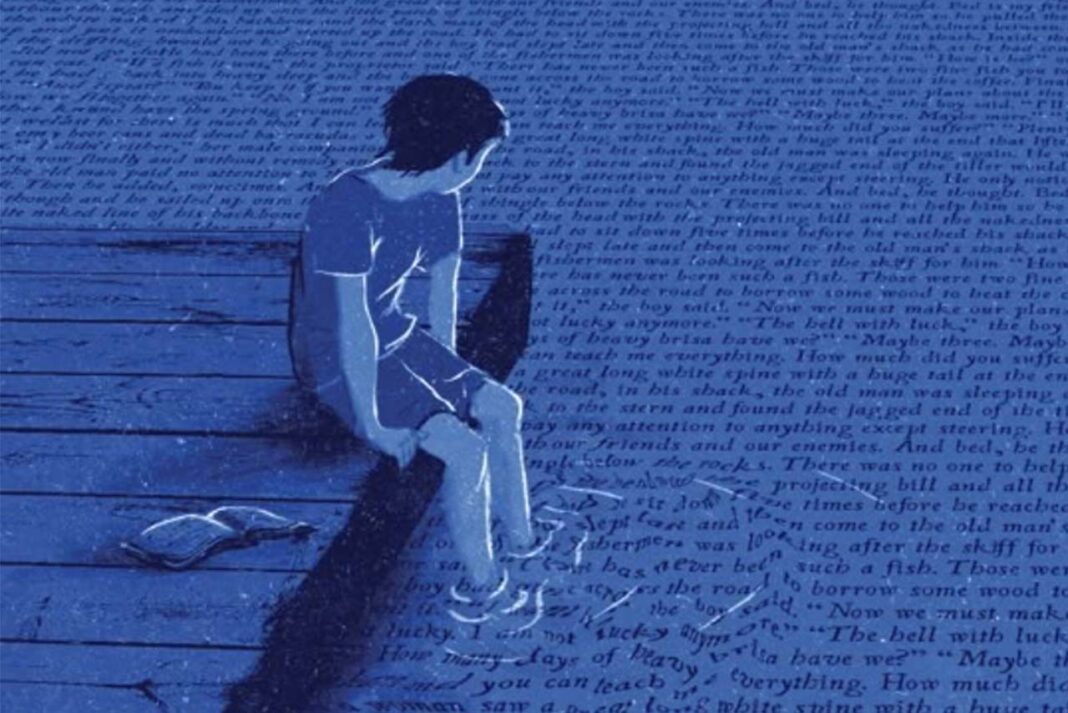“And I just sat with it. The uncomfortability of the old chair that was sticking up my back, the dust of the room that was circling around the air and the familiarity that was once lighting my soul was now slowly burning it. I could feel the lump of tears in my throat confused about where to go next. The lump that I called grief. What do I do with it? Will it ever go away? And if it does, would that mean that it never truly mattered? I sat holding onto the pictures, the memories and the ghosts of the conversations still clinging to the walls. It was not the chair or the dust that was uncomfortable, it was the silence of the space that was once so lively. It felt empty and so did I but I sat with it.”
Grief is never comfortable. It is above all existential and thus complicated. Literature says there are five stages of grief: denial, anger, depression, bargaining and acceptance (Kübler-Ross, 1969). Conceptualizing something so deep may seem like a good coping strategy. It is almost like a map. A map of familiarity. Wouldn’t Freud call it intellectualizing? But like any emotion, grief is not linear and for that it is not familiar. It comes like a wave. One moment you are ankle-deep and another you are drowning again. You can go from depression to denial and then back to stage one. All of a sudden you start to bargain for that person’s loss and then anger takes over and then you get depressed again. Then at times, which feels like a light at the end of the tunnel, you feel like you finally accepted it. When all of a sudden you go back to the previous stages again. And this too is the nature of grief.
Does Grief Equal Death?
They say grief is reserved for death. The dictionary says that grief is an intense sorrow and, existentially, loss is not only about those no longer breathing. How many times did you find yourself grieving something or someone that still exists within the world but is no longer part of your world? You grieve the version of yourself that you envy at times for its bravery, a dream that you had to leave in the past, a home that once held your peace. A job or even a season that has once made you feel like you are on cloud nine. We not only grieve what we lost outside of us, we grieve the parts of us that were present in those moments. The job, the dream, the person, the place. They were not just parts of our worlds, they were the elements that shaped us and that remember the versions of us that we once were. And then rumbles the question: will I always have to say goodbye?
When Did It All Begin and Will It Ever End?
The truth is people have been saying goodbyes since they were little kids. When their mothers had to leave them in kindergartens, schools, or at their friends’ houses. It felt like the end of the world: the secure base upon which the child made its decisions is now gone. The cries were loud because the heart was grieving. It was hard to imagine something that was so present at all times now completely gone. But had they not been left in schools without parents, they would not have made new friends and acquired a new skill. One would think, isn’t it time to finally get adjusted to the fact that while grief takes, it also gives?
What Grief Brings Along
Isn’t that the cycle of life? Leaves fall down in fall to make space for new flowers. They let go to create space for the new spring bloom. Likewise, when a star dies it is said to either become a black hole or dissolve in the universe, scattering its elements that form oceans, planets, and life. Eventually, everything that has ever died is still part of the ecosystem but the purpose of extinction is to give space for new things to come along.
With this being said, perhaps it wouldn’t hurt to sit with grief without trying to deny it or repress the emotions that it brings alone. Sitting with uncomfortability and unfamiliarity creates resilience. It teaches you how to be with yourself, to cope with the presence and be more prepared for what the future holds for you. For such, the more you sit with it, the less foreign it becomes. Not easier but known. You become present in the moment, in touch with yourself and the past versions of yourself. But for what it is worth, just like the stars that collapse in the universe, your past versions are part of your current self helping you develop new skills and space for the better version.


